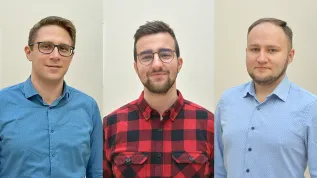
In Poland, women account for 60 percent of all students, but only 21 percent of all professors. Although the number of women in science continues to grow, they still too rarely occupy the highest positions, spoke participants one of the debates during the Congress of Women.
"I always thought that for women in politics it is difficult to get to the top, become a number one on the electoral list, become a minister. It turns out that in science, which is based on skill, meritocracy, the person’s own capital, we have to deal with similar career stoppers" - said Minister of Science and Higher Education Prof. Lena Kolarska-Bobińska during the debate "Women Innovators".
In Poland, women account for 60 percent of all students. Compared with men, they more often complete their studies. As many as 64 percent masters are women. "This shows how motivated women are to learn and graduate. However, with successive levels of career, more and more women drop out of science. Among professors, only 21 percent are women, not to mention university rectors. Only 13 percent rectors of large universities are women" - said Minister of Science.
But - she pointed out - among Polish scientists there are many more women than in other EU countries, and it is a phenomenon. More and more young women apply for grants and win. As a result of the campaign "Girls to technical universities!" women already account for nearly 40 percent of all students a at technical universities. "It is clear that something changes in the younger generation, and it is an unstoppable wave, also in science" - she noted.
Prof. Agnieszka Zalewska, the first woman to become President of the Council of the European Organisation for Nuclear Research (CERN), expressed a similar view. "CERN ranks well in terms of the number of women among international organizations. They constitute 20 percent employees. Increase in the number of women is a constant tendency in science" - added Prof. Zalewska.
Debate participants drew attention to the barriers that hinder women\'s entry into the man’s scientific world. President of the American Association of University Technology Managers Jane M. Muir explained that, according to the study conducted by her center, the most important barrier is women\'s low self-confidence. Further obstacles included are the lack of a mentor, master, and a network of people with whom women could talk about their challenges, said Jane M. Muir.
Prof. Zalewska mentioned "a very delicate moment in the life of a woman-scientist, when she has small children and wants to combine work and family life". "This is an area in which we can do a lot to help. Good kindergartens and nurseries are extremely important. A woman must know her children are were well looked after and she can work scientifically" - she emphasised.
Women should also make more use of the possibilities of offered by modern technology. "A mother of small children does not have to spend ten hours a day at the institute. She can organize her work so that laboratory work takes four to five hours, then she can process the results at home, using the Internet. Having a scientist as husband is helpful. This does not have to be a man working in the same field, just someone who understands the specific nature of the profession" - explained the researcher.
Science Minister emphasised that the Ministry made it mandatory that 30 percent persons working in the Polish Accreditation Committee are women. "But this can not be done by means of a decree in every institution. Universities enjoy autonomy, rectors are elected and we need very strong grassroots pressure from women that they should be not only heads of research groups, but also universities as deans and rectors. We can help, for example, by facilitating women’s return to academic work after maternity leave. These are important, but still minor things. The most important thing is to monitor the number of women at every career level, and support each other" - said the Minister of Science.
During the 6th Congress of Women, held on 16-17 May, panel discussions were held on major issues facing women.
PAP - Science and Scholarship in Poland
ekr/ krf/ gma/
tr. RL













